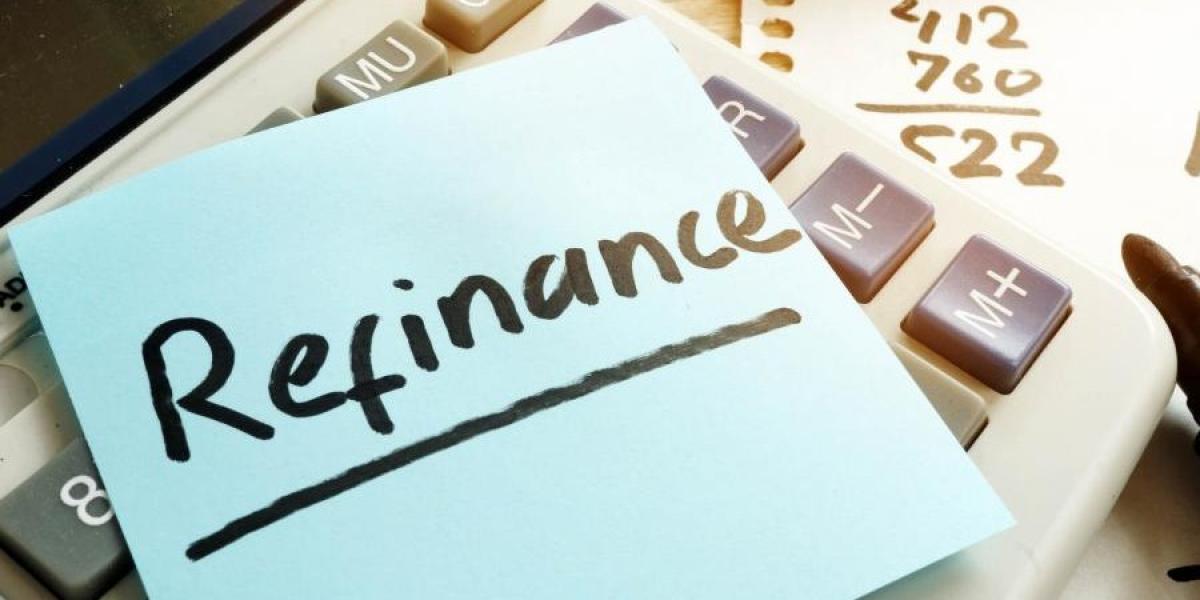Most people think selling their home over the holidays is a bad idea. The house…

When should you refinance your mortgage? | Omaha NE Homeowner’s Guide
How do you know if it will benefit you to refinance your home loan?
A home refinance can benefit a homeowner in several ways. It can lower your rate and monthly payment. You can also take cash out with a refinance to pay off other debt or do home improvements. A refinance can also lower the mortgage terms of your loan to pay it off sooner with a lower rate.
I am a local mortgage broker serving Omaha, Papillion, La Vista, Bellevue, and all of eastern Nebraska. If you would like to know about the benefits of a refinance, please contact me.
- What are the Pros of a refinance?
- What are the Cons of a refinance?
- How will I know if a refinance benefits me?
- What are some other benefits besides a lower rate?
- How does a refinance work?
What are the pros of a refinance?
Most people think of a refinance as lowering their rate and overall payment. This is certainly a pro of a refinance. If you have a higher rate and you have heard rates are now lower it is a good idea to reach out to a mortgage loan officer for their opinion.
Other reasons to refinance are to use your home’s equity. If you have been in your home for a few years the combination of paying down your current mortgage and the value of the house increasing may have given you some equity in the home. This equity can be a powerful tool in your financial planning.
Here is a great story of a cash out refinance
A great example of this is a client of mine from 2019. Her husband had passed away and the last few years with his declining health they had racked up considerable credit card debt. By the time I met her all of the cards were maxed out and she was struggling just to make the minimum payments on all of their debt. However, they had been in their house for years and had considerable equity. I suggested we refinance the current mortgage and payoff all of her credit cards with the refinance. The mortgage rate was lower so we were able to keep her payment about the same and she was able to wipe out $1000s a month in minimum credit card payments. In situations like that using the home equity can be life changing.
Another good use of the refinance is to lower the terms of the loan. Now anyone can make extra payments towards their mortgage to pay it off sooner. But if you would like to look at a lower term and rate (the most common being 30 year to a 15 year) we can review the benefits of that lower term and likely lower rate.
What are the cons of a refinance?
There are some things to consider before moving forward on a refinance. I will go through all the questions to ask before moving forward below, but the biggest con of a refinance will be the cost. All home loans have cost. You may have seen “no cost” refinances advertised, but that is just a gimmick to get you to call.
“No cost” refinance
There are ways for the lender to cover the closing cost for you. This is done with a lender credit on a higher than market rate. For example, if the market rate is 3.25%, a lender could offer 3.5% and give you a lender credit to cover cost. If the rates are drastically lower than your current rate, it may be possible to get a no cost refinance. But if you want the lowest rate currently offered, you will have cost associated with the loan.
Cons of extending out your term
Another thing to consider is the loan term. If you have had your 30 year mortgage for 5 years and you refinance into another 30 year loan the term starts over. You will have another 30 years to pay off that loan. There are options (called “flex terms”) where we can customize the years left on your new loan. We can do a 27 year loan if you have had your current loan for 3 years. This will keep the pay off term the same while potentially lowering the rate.
How will I know if a refinance benefits me?
Same term refinance
If you are going from a 30 year loan to another 30 year loan (or any other similar term), there is some simple math that we can do to determine if a refinance is right for you. We can take the monthly savings on the new loan compared to your current loan. Then we can take the cost of the refinance and divide that by the savings to get the months it will take you to profit from a refinance. If closing cost are $2500 and the savings is $50 a month it will take 50 months to profit from a refinance (2500/50 = 50). If you plan on staying in the house much longer than the 50 months, a refinance could benefit you.
Lowering the pay off term refinance
For a refinance that lowers the term of your loan (30 to 15 for example) we just have to see how much interest remains on your current loan with an amortization schedule. If the overall savings is significant, it may be a benefit to refinance.
Cash out refinance
For a cash out refinance for debt consolidation, it is really just a matter of looking at the whole picture. Will reducing your consumer debt help you and your families finances? The debt consolidation, in my opinion, is the one refinance most likely to have the biggest financial impact. Saving $50 a month on your mortgage is nice, but being able to wipe out large amounts of consumer debt can be life changing.
What are some other benefits besides a lower rate?
I have already touched on a few benefits that do not necessarily have to do with a lower rate. A cash out refinance is an example of a refinance that could benefit you even if the current rates are higher than your rate (though being able to lower the rate and pay off debt is nice). But there are a few other reasons to refinance that don’t necessarily have to do with rate.
FHA to conventional refinance
One thing we have not touched on is changing the loan program on a refinance. You may have qualified for one program when you closed on your current loan and now qualify for a better program with a new refinance. The most common of these is the FHA to Conventional refinance.
Many buyers only qualify for the FHA loan when they buy a home. The FHA program is great for buyers with less than perfect credit and a limited down payment. But after several years many FHA homeowners improve their credit, increase their income, and gain a bit of equity in their property. If any of these sound like you it could be a huge benefit to refinance from an FHA loan to a conventional loan.
FHA’s biggest “con” is it has high mortgage insurance that is permanent on the loan. Unlike conventional, FHA’s mortgage insurance does not drop off once you have 20% equity. This is where a refinance to a conventional loan can have the biggest benefit. If you have gained a bit of equity in your home, we could switch you to a conventional loan and not only lower the rate but reduce or remove that mortgage insurance. Even on a small loan this can potentially knock $100s of your monthly payment.
Deliberately extending out your loan term
I discussed above how starting a new 30 year loan term can be a con on a refinance. Many homeowners do not like the idea of starting that 30 year clock over again. But for some homeowners that is not a concern. In fact, starting that over is a benefit.
For example, let’s say you have had your loan for 10 years and have paid down a significant amount of the loan. If you refinance into a new 30 year loan we will be able to lower your payment significantly for two reasons. First if you are getting a lower rate that will lower your payment. But second starting that new 30 year loan will space out the new payments on a smaller loan. Make sense? Your current mortgage payment will always be the same and is based on the loan balance at the start. Let’s say you took out a 200k loan, your payment is based of that loan amount and the rate at the time. If you have paid it down to 150k and we refinance the new loan will be based on 150k and the new rate.
Now if your primary concern is the amount you pay monthly and not necessarily getting the loan paid off as soon as possible, starting over on the 30 can actually be a benefit. Sometimes the pros and cons of a refinance depend on your financial goals.
How does a refinance work?
In some ways a refinance can be more confusing than a purchase. One of the reasons for this is there are more unknowns right at the start.
When you call in to inquire about a refinance there are a few things that have to be estimated. Until we have a close date and a payoff on your current mortgage, we do not know how much will have to be paid towards your current loan. We can take a fairly accurate guess, but it is still an estimate. Until we have a close date the new tax and insurance escrow estimate will be just that. The amount that will be put into the new escrow account will vary based on when we close. With Nebraska taxes, this can be a big swing with just a few months difference in tax escrow.
Remember we are closing out your current loan
We are using the new loan to pay off the old loan. The new loan will have to pay off the balance on the day of closing. It will also have to cover the closing cost and the new escrow account on the new loan. If the total pay off, closing cost, and new escrow account are higher than the new loan amount, you will have to bring the difference to closing in with a cashier’s check.
We often have the option to increase the new loan amount to cover cost and escrow, but if we do not, or you do not want to have a higher loan balance on the new loan, you will have to bring funds to close.
Tax and insurance escrow
This is the most confusing part of a refinance for most borrowers. You likely have a current escrow account on your loan. This money is yours but is being set aside by your current lender to pay future taxes and insurance. When you refinance that escrow account does not transfer to the new loan. A new escrow account will have to be set up on the new loan. So what happens to your current escrow money?
Once your current loan is closed, your current lender will start processing the refund of your current escrow. Whatever was in there at the time we closed out the loan will be mailed back to you and is yours to keep. This takes about 3 to 4 weeks after we close.
So remember, you have to setup a new escrow account, but you will get your old escrow account back a few weeks after close.
Skipping a payment
Let’s say we close in March on your refinance. Your first payment on the new loan is due May 1st. You will not have an April mortgage payment. This is why you will hear that you “skip a payment” on a refinance.
This is technically true, but the lender is not giving you a free month. You will pay interest on any mortgage you have until the day it is paid off. If we close March 15th the pay off of your current mortgage will include the balance plus 15 days of interest. At the close of your new loan there will be an additional 15 days of interest paid at close. Any month we close in you will pay a total of 30 days of interest on the refinance. This is, in effect, that skipped month.
Now you can bring that money to close for the skipped payment, the cost, the new escrow, or any amount you are comfortable with. You can sometimes, with enough equity, bring nothing to close and still skip that payment and get your old escrow money back. We just have to “roll” everything into the new loan.
Contact a loan officer
A refinance has a lot of moving parts and knowing if it is a benefit is difficult to do without a phone consultation with a local loan officer. If you are curious about refinancing a 5 minute phone call is usually all that is needed to know if you should move forward.
Other useful links
- How to improve your credit
- The 20% down rule on conventional
- What is Escrow?
- How is income calculated?
- Why your assets matter
- Mortgage Calculator
- Is Credit Karma accurate?
- FHA vs Conventional, which is better?
What To Do Next




